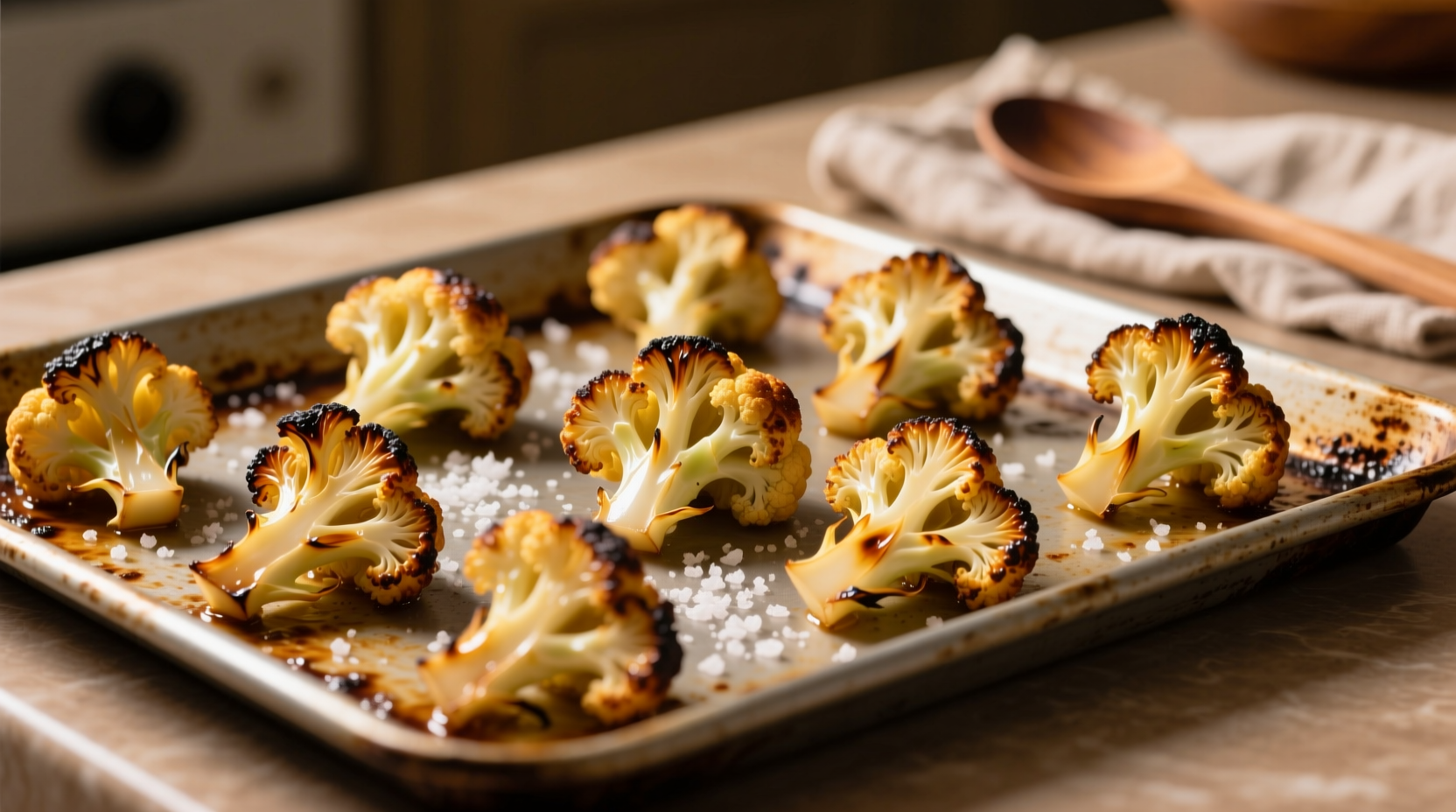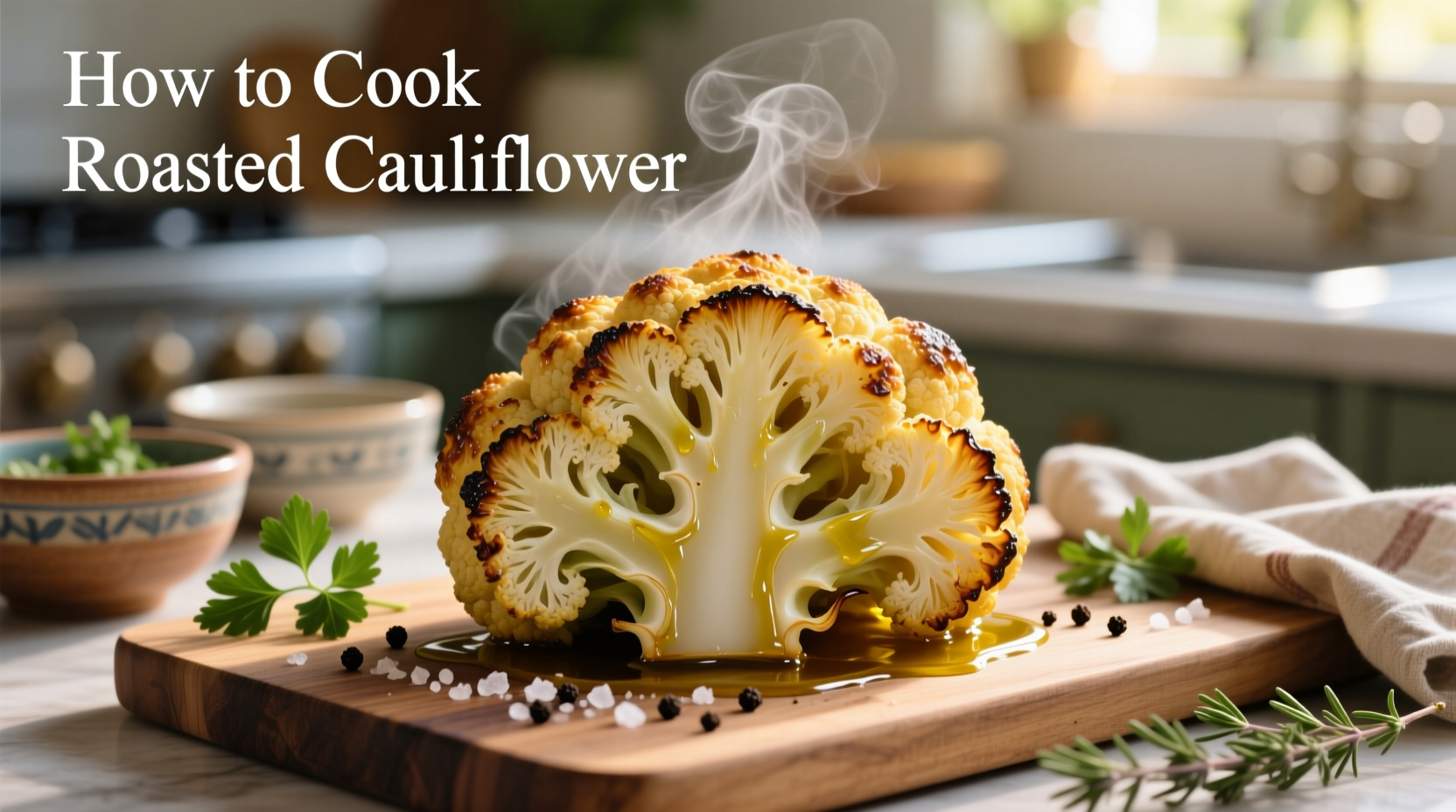Perfectly roasted cauliflower features crispy edges, tender centers, and deep caramelized flavor achieved by roasting florets at 425°F (220°C) for 25-30 minutes with olive oil, salt, and proper spacing on the baking sheet. This simple technique transforms humble cauliflower into a restaurant-quality side dish with minimal effort.
Roasted cauliflower has become a staple in modern kitchens for good reason. This humble vegetable transforms into something extraordinary when roasted properly - developing complex flavors through the Maillard reaction while maintaining its nutritional benefits. Whether you're a beginner cook or seasoned chef, mastering this technique opens doors to countless flavor variations and meal possibilities.
Why Roasting Beats Boiling for Cauliflower
Unlike boiling which leaches nutrients and creates mushy texture, roasting concentrates flavors and creates delightful textural contrast. The dry heat caramelizes natural sugars while preserving glucosinolates - beneficial compounds that support cellular health. According to the US Department of Agriculture, roasting maintains 90% of cauliflower's vitamin C content compared to 60% retention with boiling.
| Cooking Method | Texture Result | Vitamin C Retention | Flavor Development |
|---|---|---|---|
| Roasting (425°F) | Crispy edges, tender center | 90% | Complex caramelization |
| Boiling | Uniformly soft | 60% | Subtle, sometimes bland |
| Steaming | Firm but tender | 75% | Mild, clean flavor |
Essential Ingredients and Equipment
You need surprisingly few ingredients for exceptional roasted cauliflower. The quality of your olive oil makes a noticeable difference - choose extra virgin with fresh, grassy notes rather than neutral oils that won't contribute flavor.
- 1 large head cauliflower (about 2 lbs)
- 3 tablespoons extra virgin olive oil
- 1½ teaspoons kosher salt
- ½ teaspoon freshly ground black pepper
- Optional: 2-3 garlic cloves (thinly sliced)
Equipment essentials include a heavy-duty rimmed baking sheet (avoid dark nonstick pans which promote burning) and parchment paper for easy cleanup. For best results, use a sheet that allows single-layer spacing with ½ inch between florets - overcrowding causes steaming rather than roasting.

Step-by-Step Roasting Process
Preparation Phase: 10 Minutes
- Preheat oven to 425°F (220°C) - this high temperature is crucial for proper caramelization
- Remove outer leaves and trim stem flush with base
- Cut into uniform 1½-inch florets (varying sizes cook unevenly)
- Wash and thoroughly dry - water prevents browning
- Toss with oil, salt, and pepper in a large bowl until evenly coated
Roasting Phase: 25-30 Minutes
- Arrange florets in single layer on parchment-lined baking sheet
- Roast 15 minutes, then flip florets using tongs for even browning
- Continue roasting 10-15 minutes until deeply golden brown at edges
- Optional: Add minced garlic during last 5 minutes to prevent burning
- Remove when internal temperature reaches 185°F (85°C) for perfect tenderness
Avoid These Common Roasting Mistakes
Even experienced cooks make these critical errors that compromise results:
- Overcrowding the pan: Creates steam instead of dry heat, yielding soggy cauliflower
- Insufficient preheating: Oven must reach full temperature before adding cauliflower
- Skipping the flip: Prevents even browning on all sides
- Using low oven temperature: Below 400°F won't create proper caramelization
- Adding wet ingredients too early: Lemon juice or vinegar should go on after roasting
Flavor Variations and Serving Suggestions
Once you've mastered the basic technique, experiment with these professional chef-approved variations:
- Middle Eastern Style: Toss with cumin, coriander, and smoked paprika before roasting, finish with lemon-tahini drizzle
- Indian Spiced: Coat with turmeric, garam masala, and ginger before roasting, garnish with fresh cilantro
- Cheesy Finish: Sprinkle with Parmesan during last 5 minutes for crispy cheese crust
- Lemon-Herb: Toss with fresh thyme and lemon zest after roasting for bright finish
Pair roasted cauliflower with grilled proteins, fold into grain bowls, or puree for sophisticated side dishes. For meal prep, roast in larger batches and store properly - it maintains quality for 4 days refrigerated or 3 months frozen.
Storage and Reheating Guidelines
Proper storage maintains texture and flavor for future meals:
- Cool completely before storing (trapped steam creates sogginess)
- Refrigerate in airtight container for up to 4 days
- Freeze on parchment-lined tray before transferring to freezer bags (prevents clumping)
- Reheat in 400°F oven for 8-10 minutes (microwaving makes it soggy)
- Revive leftovers with quick air fry at 375°F for 5 minutes











 浙公网安备
33010002000092号
浙公网安备
33010002000092号 浙B2-20120091-4
浙B2-20120091-4